Education programmes for people with chronic kidney disease and diabetes
- PMID: 39171639
- PMCID: PMC11339929
- DOI: 10.1002/14651858.CD007374.pub3
Education programmes for people with chronic kidney disease and diabetes
Abstract
Background: Adherence to complex regimens for people with chronic kidney disease (CKD) and diabetes is often poor. Interventions to enhance adherence require intensive education and behavioural counselling. However, whether the existing evidence is scientifically rigorous and can support recommendations for routine use of educational programmes in people with CKD and diabetes is still unknown. This is an update of a review first published in 2011.
Objectives: To evaluate the benefits and harms of education programmes for people with CKD and diabetes.
Search methods: We searched the Cochrane Kidney and Transplant Register of Studies up to 19 July 2024 using search terms relevant to this review. Studies in the Register are identified through searches of CENTRAL, MEDLINE, and EMBASE, conference proceedings, the International Clinical Trials Registry Platform (ICTRP) Search Portal, and ClinicalTrials.gov.
Selection criteria: We included randomised controlled trials (RCTs) and quasi-RCTs investigating the benefits and harms of educational programmes (information and behavioural instructions and advice given by a healthcare provider, who could be a nurse, pharmacist, educator, health professional, medical practitioner, or healthcare provider, through verbal, written, audio-recording, or computer-aided modalities) for people 18 years and older with CKD and diabetes.
Data collection and analysis: Two authors independently screened the literature, determined study eligibility, assessed quality, and extracted and entered data. We expressed dichotomous outcomes as risk ratios (RR) with 95% confidence intervals (CI) and continuous data as mean difference (MD) with 95% CI. Data were pooled using the random-effects model. The certainty of the evidence was assessed using the Grades of Recommendation, Assessment, Development and Evaluation (GRADE) approach.
Main results: Eight studies (13 reports, 840 randomised participants) were included. The overall risk of bias was low for objective outcomes and attrition bias, unclear for selection bias, reporting bias and other biases, and high for subjective outcomes. Education programmes compared to routine care alone probably decrease glycated haemoglobin (HbA1c) (4 studies, 467 participants: MD -0.42%, 95% CI -0.53 to -0.31; moderate certainty evidence; 13.5 months follow-up) and may decrease total cholesterol (179 participants: MD -0.35 mmol/L, 95% CI -0.63 to -00.07; low certainty evidence) and low-density lipoprotein (LDL) cholesterol (179 participants: MD -0.40 mmol/L, 95% CI -0.65 to -0.14; low certainty evidence) at 18 months of follow-up. One study (83 participants) reported education programmes for people receiving dialysis who have diabetes may improve the diabetes knowledge of diagnosis, monitoring, hypoglycaemia, hyperglycaemia, medication with insulin, oral medication, personal health habits, diet, exercise, chronic complications, and living with diabetes and coping with stress (all low certainty evidence). There may be an improvement in the general knowledge of diabetes at the end of the intervention and at the end of the three-month follow-up (one study, 97 participants; low certainty evidence) in people with diabetes and moderately increased albuminuria (A2). In participants with diabetes and moderately increased albuminuria (A2) (one study, 97 participants), education programmes may improve a participant's beliefs in treatment effectiveness and total self-efficacy at the end of five weeks compared to routine care (low certainty evidence). Self-efficacy for in-home blood glucose monitoring and beliefs in personal control may increase at the end of the three-month follow-up (low certainty evidence). There were no differences in other self-efficacy measures. One study (100 participants) reported an education programme may increase change in behaviour for general diet, specific diet and home blood glucose monitoring at the end of treatment (low certainty evidence); however, at the end of three months of follow-up, there may be no difference in any behaviour change outcomes (all low certainty evidence). There were uncertain effects on death, serious hypoglycaemia, and kidney failure due to very low certainty evidence. No data was available for changes in kidney function (creatinine clearance, serum creatinine, doubling of serum creatinine or proteinuria). For an education programme plus multidisciplinary, co-ordinated care compared to routine care, there may be little or no difference in HbA1c, kidney failure, estimated glomerular filtration rate (eGFR), systolic or diastolic blood pressure, hypoglycaemia, hyperglycaemia, and LDL and high-density lipoprotein (HDL) cholesterol (all low certainty evidence in participants with type-2 diabetes mellitus and documented advanced diabetic nephropathy). There were no data for death, patient-orientated measures, change in kidney function (other than eGFR and albuminuria), cardiovascular disease morbidity, quality of life, or adverse events.
Authors' conclusions: Education programmes may improve knowledge of some areas related to diabetes care and some self-management practices. Education programmes probably decrease HbA1c in people with CKD and diabetes, but the effect on other clinical outcomes is unclear. This review only included eight studies with small sample sizes. Therefore, more randomised studies are needed to examine the efficacy of education programmes on important clinical outcomes in people with CKD and diabetes.
Trial registration: ClinicalTrials.gov NCT00708981 NCT00263419 NCT01212328 NCT00253786 NCT01967901 NCT02276742 NCT05319600 NCT06325917 NCT06444074 NCT00714441 NCT00320008 NCT01829256 NCT00309127 NCT00782847 NCT03413215.
Copyright © 2024 The Cochrane Collaboration. Published by John Wiley & Sons, Ltd.
Conflict of interest statement
Brydee Cashmore: No relevant interests were disclosed
Tess E Cooper: No relevant interests were disclosed
Nicole M Evangelidis: No relevant interests were disclosed
Suetonia C Palmer: No relevant interests were disclosed
Pamela Lopez‐Vargas: No relevant interests were disclosed
David J Tunnicliffe: No relevant interests were disclosed
Figures

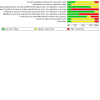
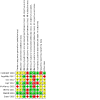
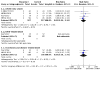
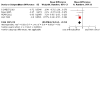
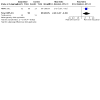
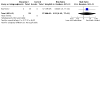
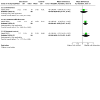
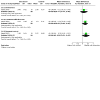
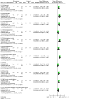
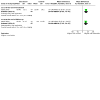
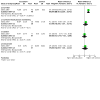
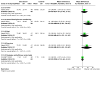
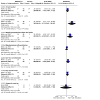
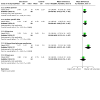
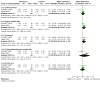


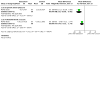
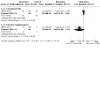
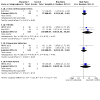
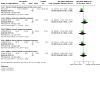
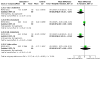
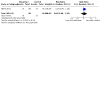

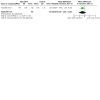
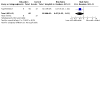


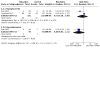

Update of
-
Education programmes for people with diabetic kidney disease.Cochrane Database Syst Rev. 2011 Jun 15;(6):CD007374. doi: 10.1002/14651858.CD007374.pub2. Cochrane Database Syst Rev. 2011. Update in: Cochrane Database Syst Rev. 2024 Aug 22;8:CD007374. doi: 10.1002/14651858.CD007374.pub3. PMID: 21678365 Updated.
References
References to studies included in this review
C‐DIRECT 2019 {published data only}10546597
-
- Griva K, Rajeswari M, Nandakumar M, Khoo EY, Lee VY, Chua CG, et al. The combined diabetes and renal control trial (C-DIRECT) - a feasibility randomised controlled trial to evaluate outcomes in multi-morbid patients with diabetes and on dialysis using a mixed methods approach. BMC Nephrology 2019;20(1):2. [PMID: ] - PMC - PubMed
Fogelfeld 2017 {published data only}
-
- Fogelfeld L, Hart P, Miernik J, Ko J, Calvin D, Tahsin B, et al. Combined diabetes-renal multifactorial intervention in patients with advanced diabetic nephropathy: Proof-of-concept. Journal of Diabetes & its Complications 2017;31(3):624-30. [MEDLINE: ] - PubMed
Guo 2022 {published data only}2200057011
-
- Guo N, Li N, Zhao Y, Sun H, Liu K. Effects of systematic diet education combined with multidisciplinary nursing on nutritional status and calcium and phosphorus metabolism in patients with diabetic kidney disease in uremic phase after treatment with alogliptin. Journal of Healthcare Engineering 2022;2022:1120242. [DOI: 10.1155/2022/1120242] [MEDLINE: ] - DOI - PMC - PubMed
Kopf 2012 {published data only}
-
- Hartmann M, Kopf S, Kircher C, Faude-Lang V, Djuric Z, Augstein F, et al. Sustained effects of a mindfulness-based stress-reduction intervention in type 2 diabetic patients: design and first results of a randomized controlled trial (the Heidelberger Diabetes and Stress-study). Diabetes Care 2012;35(5):945-7. [MEDLINE: ] - PMC - PubMed
-
- Kopf S, Oikonomou D, Hartmann M, Feier F, Faude-Lang V, Morcos M, et al. Effects of stress reduction on cardiovascular risk factors in type 2 diabetes patients with early kidney disease - results of a randomized controlled trial (HEIDIS). Experimental & Clinical Endocrinology & Diabetes 2014;122(6):341-9. [MEDLINE: ] - PubMed
-
- Kopf S, Oikonomou D, Eynatten M, Kieser M, Zdunek D, Hess G, et al. Urinary excretion of high molecular weight adiponectin is an independent predictor of decline of renal function in type 2 diabetes. Acta Diabetologica 2014;51(3):479-89. [MEDLINE: ] - PubMed
-
- Sulaj A, Kopf S, Grone E, Grone HJ, Hoffmann S, Schleicher E, et al. ALCAM a novel biomarker in patients with type 2 diabetes mellitus complicated with diabetic nephropathy. Journal of Diabetes & its Complications 2017;31(6):1058-65. [MEDLINE: ] - PubMed
McMurray 2002 {published data only}
-
- Johnson GR, McMurray SD, Davis D, McDougall K. Diabetes education and care management significantly improves patient outcomes in the dialysis unit [abstract no: A0778]. Journal of the American Society of Nephrology 2001;12(Program & Abstracts):148-9A. [CENTRAL: CN-00445946] - PubMed
-
- McMurray SD, Johnson G, Davis S, McDougall K. Diabetes education and care management significantly improve patient outcomes in the dialysis unit. American Journal of Kidney Diseases 2002;40(3):566-75. [MEDLINE: ] - PubMed
MEMO 2011 {published data only}83140074
-
- Crasto W, Jarvis J, Khunti K, Skinner TC, Gray LJ, Brela J, et al. Multifactorial intervention in individuals with type 2 diabetes and microalbuminuria: the Microalbuminuria Education and Medication Optimisation (MEMO) study. Diabetes Research & Clinical Practice 2011;93(3):328-36. [MEDLINE: ] - PubMed
-
- Crasto W, Khunti K, Jarvis Kay J, Skinner TC, Gray LJ, Brela J, et al. Impact of intensive multi-factorial intervention on novel markers of inflammation and vascular stiffness [abstract no: P446]. Diabetic Medicine 2011;28(Suppl 1):166. [EMBASE: 70631246]
-
- Crasto W, Morrison AE, Gray LJ, John E, Jarvis J, Brela J, et al. The Microalbuminuria Education Medication and Optimisation (MEMO) study: 4 years follow-up of multifactorial intervention in high-risk individuals with type 2 diabetes. Diabetic Medicine 2020;37(2):286-97. [MEDLINE: ] - PubMed
-
- Crasto WA, Jarvis J, Brela J, Daly H, Gray LJ, Troughton J, et al. Interim analysis of the effects of a multifactorial intervention in people with type 2 diabetes and microalbuminuria after twelve months [abstract no: P410]. Diabetic Medicine 2009;26(Suppl 1):160. [EMBASE: 70342536]
MESMI 2010 {published data only}12607000044426
-
- Williams A, Manias E, Walker R, Gorelik A. A multifactorial intervention to improve blood pressure control in co-existing diabetes and kidney disease: a feasibility randomized controlled trial. Journal of Advanced Nursing 2012;68(11):2515-25. [MEDLINE: ] - PubMed
Steed 2005 {published data only}74927844
-
- Steed L, Lankester J, Barnard M, Earle K, Hurel S, Newman S. Evaluation of the UCL diabetes self-management programme (UCL-DSMP): a randomized controlled trial. Journal of Health Psychology 2005;10(2):261-76. [MEDLINE: ] - PubMed
References to studies excluded from this review
Ali 2024 {published data only}
-
- Ali MK, Singh K, Kondal D, Devarajan R, Patel SA, Menon VU, et al. Effect of a multicomponent quality improvement strategy on sustained achievement of diabetes care goals and macrovascular and microvascular complications in South Asia at 6.5 years follow-up: post hoc analyses of the CARRS randomized clinical trial. PLoS Medicine 2024;21(6):e1004335. [DOI: 10.1371/journal.pmed.1004335] [PMID: ] - DOI - PMC - PubMed
Bao 2021 {published data only}
Binik 1993 {published data only}
-
- Binik YM, Devins GM, Barre PE, Guttmann RD, Hollomby DJ, Mandin H, et al. Live and learn: patient education delays the need to initiate renal replacement therapy in end-stage renal disease. Journal of Nervous & Mental Disease 1993;181(6):371-6. [MEDLINE: ] - PubMed
-
- Devins GM, Mendelssohn DC, Barre PE, Taub K, Binik YM. Predialysis psychoeducational intervention extends survival in CKD: a 20-year follow-up. American Journal of Kidney Diseases 2005;46(6):1088-98. [MEDLINE: ] - PubMed
Briggs 2004 {published data only}
-
- Briggs LA, Kirchhoff KT, Hammes BJ, Song MK, Colvin ER. Patient-centered advance care planning in special patient populations: a pilot study. Journal of Professional Nursing 2004;20(1):47-58. [MEDLINE: ] - PubMed
Calikoglu 2023 {published data only}
-
- Calikoglu F, Bagdemir E, Celik S, Idiz C, Ozsari H, Issever H, et al. Telemedicine as a motivational tool to optimize metabolic control in patients with diabetes in Turkey: a prospective, randomized, controlled TeleDiab trial. Telemedicine Journal & E-health 2023;29(4):518‐30. [DOI: 10.1089/tmj.2022.0028] [PMID: ] - DOI - PubMed
CAPTION 2010 {published data only}
-
- Chang EH, Doucette WR, Carter BL, Ardery G, Egan BM, James PA. Variable BP control following a physician\pharmacist model for BP: Effect of diabetes, chronic kidney disease and racial minorities [abstract no: FP-11]. Journal of the American Society of Hypertension 2014;8(4 Suppl 1):e20. [EMBASE: 71500469]
Cortes‐Sanabria 2008 {published data only}
-
- Cortes-Sanabria L, Cabrera-Pivaral CE, Cueto-Manzano AM, Rojas-Campos E, Barragan G, Hernandez-Anaya M, et al. Improving care of patients with diabetes and CKD: a pilot study for a cluster-randomized trial. American Journal of Kidney Disease 2008;51(5):777-8. [MEDLINE: ] - PubMed
-
- Cortes-Sanabria LC, Martinez-Ramirez HR, Rojas-Campos E, Cabrera-Pivaral CE, Cueto-Manzano AM. Effect of an educational participative intervention on the clinical aptitude of family doctors treating patients with type 2 diabetes mellitus and nephropathy [abstract no: PUB437]. Journal of the American Society of Nephrology 2006;17(Abstracts):908A.
DePatis 2019 {published data only}
Devins 2003 {published data only}
-
- Devins GM, Mendelssohn DC, Barre PE, Binik YM. Predialysis psychoeducational intervention and coping styles influence time to dialysis in chronic kidney disease. American Journal of Kidney Diseases 2003;42(4):693-703. [MEDLINE: ] - PubMed
Didjurgeit 2002 {published data only}
-
- Didjurgeit U, Kruse J, Schmitz N, Stuckenschneider P, Sawicki PT. A time-limited, problem-orientated psychotherapeutic intervention in Type 1 diabetic patients with complications: a randomized controlled trial. Diabetic Medicine 2002;19(10):814-21. [MEDLINE: ] - PubMed
DNETT‐Japan 2010 {published data only}
-
- Shikata K, Haneda M, Koya D, Suzuki Y, Tomino Y, Yamada K, et al. Diabetic Nephropathy Remission and Regression Team Trial in Japan (DNETT-Japan): Rationale and study design. Diabetes Research & Clinical Practice 2010;87(2):228-32. [MEDLINE: ] - PubMed
-
- Shikata K, Haneda M, Ninomiya T, Koya D, Suzuki Y, Suzuki D, et al. Randomized trial of an intensified, multifactorial intervention in patients with advanced-stage diabetic kidney disease: Diabetic Nephropathy Remission and Regression Team Trial in Japan (DNETT-Japan). Journal of Diabetes Investigation 2021;12(2):207-16. [EMBASE: 32597548] - PMC - PubMed
Dong 2019 {published data only}
Du 2022a {published data only}
-
- Du Y, Wang J, Li S, Dennis B, Meireles C, Siddiqui N, et al. A technology assisted precision ketogenic diet intervention for cardio-renal-metabolic health in overweight or obese adults: Protocol for a randomized controlled trial. Contemporary Clinical Trials 2022;119:106845. [MEDLINE: ] - PubMed
Ford 2004 {published data only}
-
- Ford JC, Pope JF, Hunt AE, Gerald B. The effect of diet education on the laboratory values and knowledge of hemodialysis patients with hyperphosphatemia. Journal of Renal Nutrition 2004;14(1):36-44. [MEDLINE: ] - PubMed
FROM‐J 2010 {published data only}
-
- Yamagata K, Makino H, Akizawa T, Iseki K, Itoh S, Kimura K, et al. Design and methods of a strategic outcome study for chronic kidney disease: Frontier of Renal Outcome Modifications in Japan. Clinical & Experimental Nephrology 2010;14(2):144-51. [PMID: ] - PubMed
-
- Yamagata K, Makino H, Iseki K, Ito S, Kimura K, Kusano E, et al. Effects of educational intervention on renal outcome of early -to moderate-stage chronic kidney disease: a cluster-randomized trial [abstract no: SA-PO895]. Journal of the American Society of Nephrology 2014;25:846A.
GP‐Prompt 2018 {published data only}
-
- Willis A, Crasto W, Gray L, Dallosso H, Waheed G, Gray G, et al. The General Practitioner Prompt Study to reduce cardiovascular and renal complications in patients with type 2 diabetes and renal complications: protocol and baseline characteristics for a cluster randomized controlled trial. JMIR Research Protocols 2018;7(6):e152. [PMID: ] - PMC - PubMed
-
- Willis A, Crasto W, Gray LJ, Dallosso H, Waheed G, Davies M, et al. Effects of an electronic software "Prompt" with health care professional training on cardiovascular and renal complications in a multiethnic population with type 2 diabetes and microalbuminuria (the GP-Prompt study): results of a pragmatic cluster-randomized trial. Diabetes Care 2020;43(8):1893-901. [PMID: ] - PubMed
Hall 2004 {published data only}
-
- Hall G, Bogan A, Dreis S, Duffy A, Greene S, Kelley K, et al. New directions in peritoneal dialysis patient training. Nephrology Nursing Journal 2004;31(2):149-154,159-63. [MEDLINE: ] - PubMed
Helou 2016 {published data only}
-
- Helou N, Talhouedec D, Shaha M, Zanchi A. The impact of a multidisciplinary self-care management program on quality of life, self-care, adherence to anti-hypertensive therapy, glycemic control, and renal function in diabetic kidney disease: a cross-over study protocol. BMC Nephrology 2016;17(1):88. [MEDLINE: ] - PMC - PubMed
HHK 2018 {published data only}
-
- Sevick MA, Woolf K, Mattoo A, Katz SD, Li H, St-Jules DE, et al. The Healthy Hearts and Kidneys (HHK) study: Design of a 2x2 RCT of technology-supported self-monitoring and social cognitive theory-based counseling to engage overweight people with diabetes and chronic kidney disease in multiple lifestyle changes. Contemporary Clinical Trials 2018 Jan;64:265-73. [MEDLINE: ] - PMC - PubMed
Hoto 2010 {published data only}
-
- Hotu C, Bagg W, Collins J, Harwood L, Whalley G, Doughty R, et al. A community-based model of care improves blood pressure control and delays progression of proteinuria, left ventricular hypertrophy and diastolic dysfunction in Māori and Pacific patients with type 2 diabetes and chronic kidney disease: a randomized controlled trial. Nephrology Dialysis Transplantation 2010;25(10):3260-6. [PMID: ] - PubMed
Kawabata 2022 {published data only}
-
- Kawabata N, Okada K, Ando A, Kurashina T, Takahashi M, Wakabayashi T, et al. Comparison of the effects of frequent versus conventional nutritional interventions in patients with type 2 diabetes mellitus: a randomized, controlled trial. Journal of Diabetes Investigation 2022;13(2):271-9. [DOI: 10.1111/jdi.13657] [MEDLINE: ] - DOI - PMC - PubMed
Kawai 2021 {published data only}UMIN000033261
Korniewicz 1994 {published data only}
-
- Korniewicz DM, O'Brien ME. Evaluation of a hemodialysis patient education and support program. ANNA Journal 1994;21(1):33-8. [MEDLINE: ] - PubMed
Kuningas 2020 {published data only}
-
- Kuningas K, Driscoll J, Mair R, Smith H, Dutton M, Day E, et al. Comparing glycaemic benefits of active versus passive lifestyle intervention in kidney allograft recipients: a randomized controlled trial. Transplantation 2020;104(7):1491-9. [MEDLINE: ] - PubMed
Leon 2006 {published data only}
-
- Leon JB, Albert JM, Gilchrist G, Kushner I, Lerner E, Mach S, et al. Improving albumin levels among hemodialysis patients: a community-based randomized controlled trial. American Journal of Kidney Diseases 2006;48(1):28-36. [MEDLINE: ] - PubMed
Leung 2005 {published data only}
-
- Leung WY, So WY, Tong PC, Chan NN, Chan JC. Effects of structured care by a pharmacist-diabetes specialist team in patients with type 2 diabetic nephropathy. American Journal of Medicine 2005;118(12):1414. [MEDLINE: ] - PubMed
Lim 2021a {published data only}
-
- Lim LL, Lau ES, Fu AW, Ray S, Hung YJ, Tan AT, et al. Effects of a technology-assisted integrated diabetes care program on cardiometabolic risk factors among patients with type 2 diabetes in the Asia-Pacific region: the JADE program randomized clinical trial. JAMA Network Open 2021;4(4):e217557. [DOI: 10.1001/jamanetworkopen.2021.7557] [MEDLINE: ] - DOI - PMC - PubMed
Litvin 2020 {published data only}
Manns 2005 {published data only}
-
- Manns BJ, Taub K, Vanderstraeten C, Jones H, Mills C, Visser M, et al. The impact of education on chronic kidney disease patients' plans to initiate dialysis with self-care dialysis: a randomized trial. Kidney International 2005;68(4):1777-83. [MEDLINE: ] - PubMed
-
- Manns BJ, Taub K, Visser M, Vanderstraeten C, Jones H, McLaughlin K. A patient-centered educational intervention to improve the utilization of self-care dialysis among predialysis patients: a randomized controlled trial [abstract no: F-PO313]. Journal of the American Society of Nephrology 2004;15(Oct):135A. [CENTRAL: CN-00626011]
-
- McLaughlin K, Jones H, VanderStraeten C, Mills C, Visser M, Taub K, et al. Why do patients choose self-care dialysis? Nephrology Dialysis Transplantation 2008;23(12):3972-6. [MEDLINE: ] - PubMed
-
- McLaughlin K, Taub K, Manns B. Why do patients with chronic kidney disease choose self-care dialysis modalities? [abstract no: SA-FC148]. Journal of the American Society of Nephrology 2005;16:114A. [CENTRAL: CN-00716081]
MDRD Study 1 1989 {published data only}
-
- Anonymous. Effects of diet and antihypertensive therapy on creatinine clearance and serum creatinine concentration in the Modification of Diet in Renal Disease Study [Erratum in: J Am Soc Nephrol 1997 Aug;8(8):1354]. Journal of the American Society of Nephrology 1996;7(4):556-66. [MEDLINE: ] - PubMed
-
- Anonymous. Effects of dietary protein restriction on the progression of moderate renal disease in the Modification of Diet in Renal Disease Study [Erratum in: J Am Soc Nephrol 1997 Mar;8(3):493]. Journal of the American Society of Nephrology 1996;7(12):2616-26. [MEDLINE: ] - PubMed
-
- Anonymous. Short-term effects of protein intake, blood pressure, and antihypertensive therapy on glomerular filtration rate in the Modification of Diet in Renal Disease Study. Journal of the American Society of Nephrology 1996;7(10):2097-109. [MEDLINE: ] - PubMed
-
- Beck GJ, Berg RL, Coggins CH, Gassman JJ, Hunsicker LG, Schluchter MD, et al. Design and statistical issues of the Modification of Diet in Renal Disease Trial. The Modification of Diet in Renal Disease Study Group. Controlled Clinical Trials 1991;12(5):566-86. [MEDLINE: ] - PubMed
-
- Buckalew VM Jr, Berg RL, Wang SR, Porush JG, Rauch S, Schulman G. Prevalence of hypertension in 1,795 subjects with chronic renal disease: the modification of diet in renal disease study baseline cohort. Modification of Diet in Renal Disease Study Group. American Journal of Kidney Diseases 1996;28(6):811-21. [MEDLINE: ] - PubMed
Naimark 2001 {published data only}
-
- Naimark DM, Bott MT, Tobe SW. Facilitating the adoption of microalbuminuria (mau) screening among type II diabetic patients in primary care: preliminary results of a randomized educational intervention trial [abstract no: SU-P0826]. Journal of the American Society of Nephrology 2002;13(Program & Abstracts):638A. [CENTRAL: CN-00446889]
-
- Naimark DMJ, Bott MT, Tobe SW, Reznick RK, David D. Promotion of urine microalbuminuria screening among primary care physicians: a randomized, controlled, educational intervention trial [abstract no: A1191]. Journal of the American Society of Nephrology 2001;12(Program & Abstracts):231A. [CENTRAL: CN-00446890]
NCT05319600 {published data only}
-
- NCT05319600. Technology-delivered physical activity program for adolescents with type 1 diabetes (Activate) [Does a behavior change skills and physical activity program improve self-regulation and health outcomes in adolescents with type 1 diabetes?]. https://clinicaltrials.gov/ct2/show/NCT05319600 2022.
NCT05357742 {published data only}
-
- NCT05357742. Basic need navigation intervention to address unmet basic needs in African Americans with diabetic kidney disease [Basic needs navigation intervention to address multidimensional adversity in African Americans with diabetic kidney disease]. https://clinicaltrials.gov/show/NCT05357742 2022.
NCT06325917 {published data only}
-
- NCT06325917. Effect of diabetes self-management education and support on glycemic control among patients with type 2 diabetic (DSMES) [Effect of self-management education with ongoing support using social media on glycemic control among patients with diabetes type 2.]. https://clinicaltrials.gov/ct2/show/NCT06325917 2023.
NCT06444074 {published data only}
-
- NCT06444074. The PACT (Patient Activation Through Conversations) study [The PACT (Patient Activation Through Conversations) study - a cluster randomised trial of a health coach-led patient activation program in type 2 diabetes]. https://clinicaltrials.gov/ct2/show/NCT06444074 2024.
Nelson 2018 {published data only}
-
- Nelson RG, Pankratz VS, Ghahate DM, Bobelu J, Faber T, Shah VO. Home-based kidney care, patient activation, and risk factors for CKD progression in Zuni Indians: a randomized, controlled clinical trial. Clinical Journal of the American Society of Nephrology: CJASN 2018;13(12):1801-9. [CENTRAL: 30442864] - PMC - PubMed
-
- Shah V, Nelson R, Pankratz V, Ghahate D, Bobelu J. Reducing health disparity - PCORI supported home based kidney care approach in Zuni Indians [abstract no: SA-OR012]. Journal of the American Society of Nephrology 2017;28:74. [EMBASE: 633700647]
Nozaki 2005 {published data only}
-
- Nozaki C, Oka M, Chaboyer W. The effects of a cognitive behavioural therapy programme for self-care on haemodialysis patients. International Journal of Nursing Practice 2005;11(5):228-36. [MEDLINE: ] - PubMed
Osaki 2017 {published data only}
-
- Kazawa K, Osaki K, Rahman MM, Moriyama M. Evaluating the effectiveness and feasibility of nurse-led distant and face-to-face interviews programs for promoting behavioral change and disease management in patients with diabetic nephropathy: a triangulation approach. BMC Nursing 2020;19:16. [MEDLINE: ] - PMC - PubMed
-
- Osaki K, Kazawa K, Moriyama M. Comparison of remote self management education with face-to-face education in patients with diabetic nephropathy: 12-month follow-up. Journal of Japan Academy of Diabetes Education & Nursing 2017;21(1):46-55.
Othman 2022 {published data only}
-
- Othman N, Gheith O, Al-Otaibi T, Said T, Halim MA, Elserwy N, et al. Effect of structured diabetes education on diabetic angiopathies among kidney transplant recipients with posttransplant diabetes: Kuwait experience. Experimental & Clinical Transplantation 2022;20(Suppl 1):46-54. [DOI: 10.6002/ect.MESOT2021.O19] [MEDLINE: ] - DOI - PubMed
Othman 2024 {published data only}
-
- Othman N, Al-Otaibi T, Halim MA, Said T, Elserwy N, Mahmoud F, et al. Effect of repeated structured diabetes education on lifestyle knowledge and self-care diabetes management in kidney transplant patients with posttransplant diabetes. Experimental & Clinical Transplantation 2024;22(Suppl 1):128‐40. [DOI: 10.6002/ect.MESOT2023.O31] [PMID: ] - DOI - PubMed
PANDIA‐IRIS 2021 {published data only}
-
- Bandiera C, Dotta-Celio J, Locatelli I, Nobre D, Wuerzner G, Pruijm M, et al. Interprofessional medication adherence program for patients with diabetic kidney disease: protocol for a randomized controlled and qualitative study (PANDIA-IRIS). JMIR Research Protocols 2021;10(3):e25966. [MEDLINE: ] - PMC - PubMed
QICKD 2009 {published data only}
Rachmani 2005 {published data only}
-
- Rachmani R, Levi Z, Slavachevski I, Avin M, Ravid M. Teaching patients to monitor their risk factors retards the progression of vascular complications in high-risk patients with Type 2 diabetes mellitus--a randomized prospective study. Diabetic Medicine 2002;19(5):385-92. [MEDLINE: ] - PubMed
-
- Rachmani R, Slavacheski I, Berla M, Frommer-Shapira R, Ravid M. Treatment of high-risk patients with diabetes: motivation and teaching intervention: a randomized, prospective 8-year follow-up study. Journal of the American Society of Nephrology 2005;16 Suppl 1:22-6. [MEDLINE: ] - PubMed
-
- Rachmani R, Slavachevski I, Berla M, Frommer-Shapira R, Ravid M. Teaching and motivating patients to control their risk factors retards progression of cardiovascular as well as microvascular sequelae of Type 2 diabetes mellitus- a randomized prospective 8 years follow-up study. Diabetic Medicine 2005;22(4):410-4. [MEDLINE: ] - PubMed
REDEEM 2013 {published data only}
Roddy 2022 {published data only}
Shi 2020 {published data only}
-
- Shi C, Fang X, Yang Y, Bai R, Yu S, Sun G, et al. Intensive multifactorial intervention improved renal impairment in short-duration type 2 diabetes: a randomized, controlled, 7-year follow-up trial. Journal of Diabetes & its Complications 2020;34(1):107468. [MEDLINE: ] - PubMed
STENO‐2 1999 {published data only}
-
- Gaede P, Lund-Andersen H, Parving HH, Pedersen O. Effect of a multifactorial intervention on mortality in type 2 diabetes. New England Journal of Medicine 2008;358(6):580-91. [MEDLINE: ] - PubMed
-
- Gaede P, Parving H, Pedersen O. Multifactorial intervention in patients with type 2 diabetes: long-term effects on mortality and vascular complications [abstract no: SA-FC042]. Journal of the American Society of Nephrology 2007;18(Abstracts):43A. [CENTRAL: CN-00740461]
-
- Gaede P, Vedel P, Larsen N, Jensen G, Parving HH, Pedersen O. The STENO-2 study: intensified multifactorial intervention reduces the risk of cardiovascular disease in patients with Type 2 diabetes and microalbuminuria [abstract no: 181]. In: 38th Annual Meeting of the European Association for the Study of Diabetes (EASD); 2002 Sep 1-5; Budapest, Hungary. 2002. [CENTRAL: CN-01912459]
STOP‐DKD 2018 {published data only}
-
- Diamantidis CJ, Bosworth HB, Oakes MM, Davenport CA, Pendergast JF, Patel S, et al. Simultaneous Risk Factor Control Using Telehealth to slOw Progression of Diabetic Kidney Disease (STOP-DKD) study: protocol and baseline characteristics of a randomized controlled trial. Contemporary Clinical Trials 2018;69:28-39. [MEDLINE: ] - PMC - PubMed
-
- Zullig LL, Diamantidis CJ, Bhapkar MV, Barnhart H, Oakes MM, Bosworth H, et al. Racial differences in nocturnal dipping status in diabetic kidney disease (DKD): results from the STOP-DKD study [abstract no: SA-PO688]. Journal of the American Society of Nephrology 2016;27(Abstract Suppl):788A. [EMBASE: 641133163]
-
- Zullig LL, Jazowski SA, Davenport CA, Diamantidis CJ, Oakes MM, Patel S, et al. Primary care providers' acceptance of pharmacists' recommendations to support optimal medication management for patients with diabetic kidney disease. Journal of General Internal Medicine 2020;35(1):63-9. [PMID: ] - PMC - PubMed
SURE 2009 {published data only}
-
- Ko GT, Yeung CY, Leung WY, Chan KW, Chung CH, Fung LM, et al. Cost implication of team-based structured versus usual care for type 2 diabetic patients with chronic renal disease. Hong Kong Medical Journal 2011;17 Suppl 6:9-12. [MEDLINE: ] - PubMed
Tan 2019 {published data only}
-
- Tan E, Khoo J, Gani LU, Malakar RD, Tay TL, Tirukonda PS, et al. Effect of multidisciplinary intensive targeted care in improving diabetes mellitus outcomes: a randomized controlled pilot study - the Integrated Diabetes Education, Awareness and Lifestyle modification in Singapore (IDEALS) Program. Trials 2019;20(1):549. [PMID: ] - PMC - PubMed
Tsay 2003 {published data only}
-
- Tsay SL. Self-efficacy training for patients with end-stage renal disease. Journal of Advanced Nursing 2003;43(4):370-5. [MEDLINE: ] - PubMed
Tsay 2004c {published data only}
-
- Tsay SL, Hung LO. Empowerment of patients with end-stage renal disease--a randomized controlled trial. International Journal of Nursing Studies 2004;41(1):59-65. [MEDLINE: ] - PubMed
Tsay 2005 {published data only}
-
- Tsay SL, Lee YC, Lee YC. Effects of an adaptation training programme for patients with end-stage renal disease. Journal of Advanced Nursing 2005;50(1):39-46. [MEDLINE: ] - PubMed
Tsuji‐Hayashi 2000 {published data only}
-
- Tsuji-Hayashi Y, Fitts SS, Abeyta VA, Young BA, Blagg CR. The new dialysis version of the Dartmouth Coop Educational System: effectiveness in improving health status and quality of life [abstract no: A1294]. Journal of the American Society of Nephrology 2000;11(Sept):246A. [CENTRAL: CN-00583293]
Tuot 2018 {published data only}
Ueki 2021 {published data only}
-
- Ueki K, Sasako T, Okazaki Y, Miyake K, Nangaku M, Ohashi Y, et al. Multifactorial intervention has a significant effect on diabetic kidney disease in patients with type 2 diabetes. Kidney International 2021;99(1):256-66. [PMID: ] - PubMed
Woolf 2017 {published data only}
-
- Woolf K, Ganguzza L, Pompeii ML, Hu L, St-Jules DE, Jagannathan R, et al. Weight loss and self-efficacy in obese/overweight patients with type 2 diabetes and chronic kidney disease in a lifestyle intervention pilot study [abstract no: 970.8]. FASEB Journal 2017;31(1 Suppl 1):--. [EMBASE: 616960059]
Yalcin 2008 {published data only}
-
- Yalcin BM, Karahan TF, Ozcelik M, Igde FA. The effects of an emotional intelligence program on the quality of life and well-being of patients with type 2 diabetes mellitus. Diabetes Educator 2008;34(6):1013-24. [MEDLINE: ] - PubMed
References to studies awaiting assessment
NCT00782847 {unpublished data only}
-
- Merker LF. Evaluation study for the programme DiaNe for people with diabetic nephropathy (DiaNe) [A prospective controlled randomized multicenter trial to evaluate the effect of a structurized multifactorial behavior modifying consultation and support programme DiaNe for people with diabetic nephropathy]. https://clinicaltrials.gov/study/NCT00782847 (first received 31 October 2008).
Suvamat 2023 {published data only}20230830001
-
- Suvamat J, Powwattana A, Thaingtham W, Pichayapinyo P, Boonlue S. Effectiveness of program to slow progression of chronic kidney disease among T2DM with HT with CKD 3 in the community: a randomized controlled trial. Journal of Primary Care & Community Health 2023;14:21501319231210619. [DOI: 10.1177/21501319231210619] [PMID: ] - DOI - PMC - PubMed
References to ongoing studies
NCT03413215 {unpublished data only}
-
- Khoo J. Effects of multidisciplinary intensive targeted care in improving diabetes outcomes: a pilot study in Singapore (IDEALS) [Effects of multidisciplinary intensive targeted care in improving diabetes outcomes: a randomized controlled pilot study - the integrated diabetes education, awareness and lifestyle modification in Singapore (IDEALS) program]. https://clinicaltrials.gov/study/NCT03413215 (first received: 29 January 2018). - PMC - PubMed
Additional references
ADA 2001
-
- Mensing C, Boucher J, Cypress M, Weinger K, Mulcahy K, Barta P, et al. National standards for diabetes self-management education. Diabetes Care 2001;24(Suppl 1):S126-33. [EMBASE: 32049617]
Afkarian 2016
AIHW 2024
-
- Australian Institute of Health and Welfare. Chronic kidney disease: Australian facts. www.aihw.gov.au/reports/chronic-kidney-disease/chronic-kidney-disease/co... (accessed 20 July 2024).
Anekwe 2018
-
- Anekwe TD, Rahkovsky I. Self-management: a comprehensive approach to management of chronic conditions. American Journal of Public Health 2018;108(Suppl 6):S430–6.
Aziz 2018
Baig 2015
Boulton 1998
-
- Boulton AJ, Gries FA, Jervell JA. Guidelines for the diagnosis and outpatient management of diabetic peripheral neuropathy. Diabetic Medicine 1998;15(6):508-14. [MEDLINE: ] - PubMed
Bradley 1999
-
- Bradley C, Todd C, Gorton T, Symonds E, Martin A, Plowright R. The development of an individualized questionnaire measure of perceived impact of diabetes on quality of life: the ADDQoL. Quality of Life Research 1999;8(1-2):79-91. [MEDLINE: ] - PubMed
Brown 1990
-
- Brown SA. Studies of educational interventions and outcomes in diabetic adults: a meta-analysis revisited. Patient Education & Counseling 1990;16(3):189-215. [MEDLINE: ] - PubMed
Calman 1994
-
- Calman K. On the state of the public health. Health Trends 1994;26(2):30-7. [MEDLINE: ] - PubMed
Captieux 2018
Chantrel 1999
-
- Chantrel F, Enache I, Bouiller M, Kolb I, Kunz K, Petitjean P, et al. Abysmal prognosis of patients with type 2 diabetes entering dialysis. Nephrology Dialysis Transplantation 1999;14(1):129-36. [MEDLINE: ] - PubMed
Chen 2016
Chuang 2021
-
- Chuang LM, Wu SV, Lee MC, Lin LJ, Liang SY, Lai PC, K, et al. The effects of knowledge and self-management of patients with early-stage chronic kidney disease: self-efficacy is a mediator. Japan Journal of Nursing Science : JJNS 2021;18(2):e12388. [PMID: ] - PubMed
Collins 2005
-
- Collins AJ, Kasiske B, Herzog C, Chavers B, Foley R, Gilbertson D, et al. Excerpts from the United States Renal Data System 2004 annual data report: atlas of end-stage renal disease in the United States. American Journal of Kidney Diseases 2005;45(1 Suppl 1):A5-7. [MEDLINE: ] - PubMed
Cowie 1989
-
- Cowie CC, Port FK, Wolfe RA, Savage PJ, Moll PP, Hawthorne VM. Disparities in incidence of diabetic end stage renal disease according to race and type of diabetes. New England Journal of Medicine 1989;321(16):1074-9. [MEDLINE: ] - PubMed
De Boer 2011
Dorresteijn 2014
Duke 2009
Ellis 2004
-
- Ellis SE, Speroff T, Dittus RS, Brown A, Pichert JW, Elasy TA. Diabetes patient education: a meta-analysis and meta-regression. Patient Education & Counseling 2004;52(1):97-105. [MEDLINE: ] - PubMed
Foley 2009
-
- Foley R, Collins A. The growing economic burden of diabetic kidney disease. Current Diabetes Reports 2009;9(6):460-5. [PMID: ] - PubMed
Gary 2003
-
- Gary TL, Genkinger JM, Guallar E, Peyrot M, Brancati FL. Meta-analysis of randomized educational and behavioral interventions in type 2 diabetes. Diabetes Educator 2003;29(3):488-501. [MEDLINE: ] - PubMed
GBD 2015
Gheith 2016
GRADE 2008
GRADE 2011
-
- Guyatt G, Oxman AD, Akl EA, Kunz R, Vist G, Brozek J, et al. GRADE guidelines: 1. Introduction-GRADE evidence profiles and summary of findings tables. Journal of Clinical Epidemiology 2011;64(4):383-94. [MEDLINE: ] - PubMed
Griva 2011
Griva 2015
Griva 2018
-
- Griva K, Nandakumar M, Ng JH, Lam KF, McBain H, Newman SP. Hemodialysis self-management intervention randomized trial (HED-SMART): a practical low-intensity intervention to improve adherence and clinical markers in patients receiving haemodialysis [Erratum in: Am J Kidney Dis. 2018 Jul;72(1):157-158]. American Journal of Kidney Diseases 2018;71(3):371-81. [PMID: ] - PubMed
Gutman 2019
-
- Gutman T, Lopez-Vargas P, Manera KE, Craig JC, Howell M, Tunnicliffe D, et al. Identifying and integrating patient and caregiver perspectives in clinical practice guidelines for percutaneous renal biopsy. Nephrology 2019;24(4):395-404. [PMID: ] - PubMed
Hawthorne 2008
Helou 2016
-
- Helou N, Dwyer A, Shaha M, Zanchi A. Multidisciplinary management of diabetic kidney disease: a systematic review and meta-analysis. JBI Database of Systematic Reviews & Implementation Reports 2016;14(7):169-207. [PMID: ] - PubMed
Higgins 2003
Higgins 2022
-
- Higgins JP, Thomas J, Chandler J, Cumpston M, Li T, Page MJ, et al. Cochrane Handbook for Systematic Reviews of Interventions version 6.3 (updated February 2022). Cochrane, 2022. Available from www.training.cochrane.org/handbook.
Hoogwerf 1992
-
- Hoogwerf BJ. Patient Questionnaire Diabetes Form 2.1. Bloomington, MN: Health Outcomes Institute, 1992.
Jenkinson 1996
-
- Jenkinson C, Layte R, Wright L, Coulter A. The UK SF-36: An Analysis and Interpretation. Oxford: Department of Public Health and Primary Care, University of Oxford, 1996.
Jitraknatee 2020
Kaplan‐Lewis 2013
-
- Kaplan-Lewis E, Percac-Lima S. No-show to primary care appointments: why patients do not come. Journal of Primary Care & Community Health 2013;4(4):251–5. [PMID: ] - PubMed
Kasper 2005
-
- Kasper DL, Harrison TR. Glomerular diseases. In: Harrison's Principles of Internal Medicine. 16th edition. New York: McGraw-Hill, 2005:1688-9.
KDIGO 2009
-
- Anonymous. KDIGO clinical practice guideline for the diagnosis, evaluation, prevention, and treatment of Chronic Kidney Disease-Mineral and Bone Disorder (CKD-MBD). Kidney International - Supplement 2009;76(113):1–130. [MEDLINE: ] - PubMed
KDIGO 2022
-
- Martin P, Awan AA, Berenguer MC, Bruchfeld A, Fabrizi F, Goldberg DS, et al. Executive summary of the KDIGO 2022 clinical practice guideline for the prevention, diagnosis, evaluation, and treatment of hepatitis c in chronic kidney disease. Kidney International 2022;102(6):1228-37. [PMID: ] - PubMed
KDIGO 2022a
-
- Anonymous. KDIGO 2022 clinical practice guideline for diabetes management in chronic kidney disease. Kidney International 2022;102(5S):S1-127. [PMID: ] - PubMed
KDOQI 2007
-
- Anonymous. KDOQI clinical practice guidelines and clinical practice recommendations for diabetes and chronic kidney disease. American Journal of Kidney Diseases 2007;49(2 Suppl 2):S12-154. [MEDLINE: ] - PubMed
KDOQI 2012
-
- Anonymous. KDOQI clinical practice guideline for diabetes and CKD: 2012 update. American Journal of Kidney Diseases 2012;60(5):850-86. [PMID: ] - PubMed
KHA 2010
-
- Kidney Health Australia. The economic impact of ESKD in Australia - Projections to 2020. The-economic-impact-of-end-stage-kidney-disease-in-Australia-Projections-to-2020.pdf 2010.
Kim 2019
-
- Kim U, Utz S. Effectiveness of a social media-based, health literacy-sensitive diabetes self-management intervention: a randomized controlled trial. Journal of Nursing Scholarship 2019;51(6):661–9. [PMID: ] - PubMed
Kjaergard 1999
-
- Kjaergard LL, Villumsen J, Gluud C. Quality of randomised clinical trials affects estimates of intervention efficacy [abstract]. In: 7th Annual Cochrane Colloquium; 1999 Oct 5-9; Rome, Italy. 1999:57.
Lopez‐Vargas 2016
-
- Lopez-Vargas PA, Tong A, Howell M, Craig JC. Educational interventions for patients with CKD: a systematic review. American Journal of Kidney Diseases 2016;68(3):353-70. [PMID: ] - PubMed
Middleton 2006
-
- Middleton RJ, Foley RN, Hegarty J, Cheung CM, McElduff P, Gibson JM, et al. The unrecognized prevalence of chronic kidney disease in diabetes. Nephrology Dialysis Transplantation 2006;21(1):88-92. [MEDLINE: ] - PubMed
Mohamed 2019
Moher 1998
-
- Moher D, Pham B, Jones A, Cook DJ, Jadad AR, Moher M, et al. Does quality of reports of randomised trials affect estimates of intervention efficacy reported in meta-analyses? Lancet 1998;352(9128):609-13. [MEDLINE: ] - PubMed
Moher 2009
Narres 2016
Norris 2001
-
- Norris SL, Engelgau MM, Narayan KM. Effectiveness of self-management training in type 2 diabetes: a systematic review of randomized controlled trials. Diabetes Care 2001;24(3):561-87. [MEDLINE: ] - PubMed
Norris 2002
-
- Norris SL, Lau J, Smith SJ, Schmid CH, Engelgau MM. Self-management education for adults with type 2 diabetes: a meta-analysis of the effect on glycemic control. Diabetes Care 2002;25(7):1159-71. [MEDLINE: ] - PubMed
Pecoraro 1990
-
- Pecoraro RE, Reiber GE, Burgess EM. Pathways to diabetic limb amputation, basis for prevention. Diabetes Care 1990;13(5):513-21. [MEDLINE: ] - PubMed
Persson 2018
Pugh 1988
-
- Pugh JA, Stern MP, Haffner SM, Eifler CW, Zapata M. Excess incidence of treatment of end-stage renal disease in Mexican Americans. American Journal of Epidemiology 1988;127(1):135-44. [MEDLINE: ] - PubMed
Ritz 1999
-
- Ritz E, Rychlik I, Locatelli F, Halimi S. End-stage renal failure in type 2 diabetes: a medical catastrophe of worldwide dimensions. American Journal of Kidney Diseases 1999;34(5):795-808. [MEDLINE: ] - PubMed
Schulz 1995
-
- Schulz KF, Chalmers I, Hayes RJ, Altman DG. Empirical evidence of bias. Dimensions of methodological quality associated with estimates of treatment effects in controlled trials. JAMA 1995;273(5):408-12. [MEDLINE: ] - PubMed
Schünemann 2022a
-
- Schünemann HJ, Higgins JP, Vist GE, Glasziou P, Akl EA, Skoetz N, et al. Chapter 14: Completing ‘Summary of findings’ tables and grading the certainty of the evidence. In: Higgins JP, Thomas J, Chandler J, Cumpston M, Li T, Page MJ, Welch VA (editors). Cochrane Handbook for Systematic Reviews of Interventions version 6.3 (updated February 2022). Cochrane, 2022. Available from www.training.cochrane.org/handbook.
Schünemann 2022b
-
- Schünemann HJ, Vist GE, Higgins JP, Santesso N, Deeks JJ, Glasziou P, et al. Chapter 15: Interpreting results and drawing conclusions. In: Higgins JP, Thomas J, Chandler J, Cumpston M, Li T, Page MJ, Welch VA (editors). Cochrane Handbook for Systematic Reviews of Interventions version 6.3 (updated February 2022). Cochrane, 2022. Available from www.training.cochrane.org/handbook.
Selvin 2007
-
- Selvin E, Manzi J, Stevens LA, Van Lente F, Lacher DA, Levey AS, et al. Calibration of serum creatinine in the National Health and Nutrition Examination Surveys (NHANES) 1988-1994, 1999-2004. American Journal of Kidney Diseases 2007;50(6):918-26. [PMID: ] - PubMed
Shen 2016
-
- Shen Y, Cai R, Sun J, Dong X, Huang R, Tian S, et al. Diabetes mellitus as a risk factor for incident chronic kidney disease and end-stage renal disease in women compared with men: a systematic review and meta-analysis. Endocrine 2017;55(1):66-76. [PMID: ] - PubMed
Shi 2016
-
- Shi M, Xu MY, Liu ZL, Duan XY, Zhu YB, Shi HM, et al. Effectiveness of family involvement in newly diagnosed type 2 diabetes patients: a follow-up study. Patient Education & Counseling 2016;99(5):776-82. [PMID: ] - PubMed
Slama‐Chaudhry 2019
-
- Slama-Chaudhry A, Golay A. Patient education and self-management support for chronic disease: methodology for implementing patient-tailored therapeutic programmes. Public Health Panorama 2019;5(2-3):357-61.
Smedley 2002
-
- Smedley BD, Stith AY, Nelson AR. Unequal Treatment Confronting Racial and Ethnic Disparities in Healthcare. Washington, DC: Institute of Medicine, National Academy Press, 2002. - PubMed
SONG‐CKD 2018
Steed 2003
-
- Steed L, Cooke D, Newman S. A systematic review of psychosocial outcomes following education, self-management and psychological interventions in diabetes mellitus. Patient Education & Counseling 2003;51(1):5-15. [MEDLINE: ] - PubMed
Tong 2012
Toto 2002
-
- Toto RD. Appropriate drug therapy for improving outcomes in diabetic nephropathy. Current Diabetes Reports 2002;2(6):545-52. [MEDLINE: ] - PubMed
USRDS 1998
-
- National Institutes of Health, National Institute of Diabetes and Digestive and Kidney Diseases. USRDS Annual Data Report (ADR) 1998. http://www.usrds.org/adr_1998.htm (Last accessed July 2008).
USRDS 2000
-
- National Institutes of Health, National Institute of Diabetes and Digestive and Kidney Diseases. USRDS Annual Data Report (ADR) 2000. http://www.usrds.org/adr_2000.htm (Last accessed April 2011).
USRDS 2001
-
- National Institutes of Health, National Institute of Diabetes and Digestive and Kidney Diseases. USRDS 2001 Annual Data Report: Atlas of End-Stage Renal Disease. http://www.usrds.org/adr_2001.htm (last accessed April 2011).
USRDS 2005
-
- National Institutes of Health, National Institute of Diabetes and Digestive and Kidney Diseases. USRDS 2005 Annual Data Report: Atlas of End-Stage Renal Disease. http://www.usrds.org/adr_2005.htm (Last accessed April 2011).
USRDS 2009
-
- National Institutes of Health, National Institute of Diabetes and Digestive and Kidney Diseases. USRDS 2009 Annual Data Report: Atlas of End-Stage Renal Disease. http://www.usrds.org/adr_2009.htm (Last accessed April 2011).
van Dieren 2010
-
- Dieren S, Beulens JW, Schouw YT, Grobbee DE, Neal B. The global burden of diabetes and its complications: an emerging pandemic. European Journal of Cardiovascular Prevention & Rehabilitation 2010;17 Suppl 1:S3-8. [PMID: ] - PubMed
White 2014
-
- White S, Chadban S. Diabetic kidney disease in Australia: current burden and future projections. Nephrology 2014;19(8):450-8. [PMID: ] - PubMed
WHO 1999
-
- World Health Organization. Definition, diagnosis and classification of diabetes mellitus and its complications: report of a WHO consultation. Part 1, Diagnosis and classification of diabetes mellitus. https://iris.who.int/handle/10665/66040 (accessed July 2024).
Windrum 2016
-
- Windrum P, Garcia-Goni M, Coad H. The impact of patient-centered versus didactic education programs in chronic patients by severity: the case of type 2 diabetes mellitus. Value in Health 2016;19(4):353-62. [PMID: ] - PubMed
References to other published versions of this review
Li 2011
Publication types
MeSH terms
Substances
Associated data
LinkOut - more resources
Full Text Sources
Medical
Research Materials
Miscellaneous

